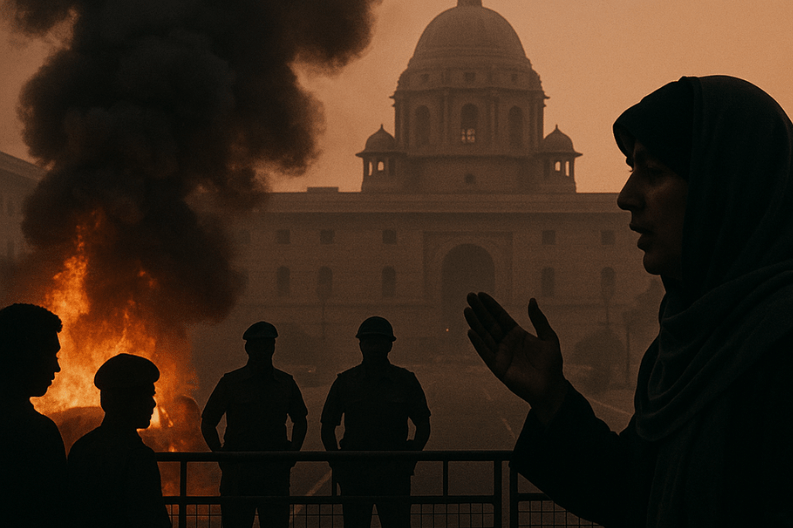Political tension after Delhi car blast grew sharply after former Jammu and Kashmir Chief Minister Mehbooba Mufti blamed the Central Government for a rising sense of insecurity across India. The blast took place on November 10 near the Red Fort, where a slow-moving car exploded, killing 13 people and injuring over 30. Police later identified the driver as Umar Un Nabi, a doctor from Kashmir linked to Al-Falah University in Faridabad, raising further questions about national security.
Moreover, Mufti voiced her concerns during a PDP Working Group meeting in Srinagar. She said the government claimed that everything was normal in Kashmir, yet the impact of Kashmir’s issues reached Delhi’s heart. Her remarks suggested that unrest in Kashmir has wider national consequences.
Additionally, Mufti highlighted how alarming it is when an educated youth, especially a doctor, becomes involved in such an attack. She said incidents like this show how deep the insecurity runs in the country. She also criticized the current political climate, warning that divisive politics could push more young people toward dangerous paths.
Furthermore, the ruling Bharatiya Janata Party (BJP) strongly opposed her comments. BJP spokesperson Pradeep Bhandari accused Mufti of supporting terrorists and questioned why the opposition remains silent on such violence. He even labeled the PDP as a “Pro Terrorist Development Party,” intensifying the political argument.
This discussion has also reached Punjab, a region with a literacy rate of 76.7% and a large population of educated youth. Security concerns feel especially relevant here. Since 2017, Punjab Police have identified more than 400 terror suspects, showing ongoing challenges related to radicalization.
In addition, Punjab’s political scene has changed in recent years. During the 2019 Lok Sabha elections, the BJP won 8 of the state’s 13 seats, showing a shift in voter support. These political changes influence how different parties respond to national security issues.
The blast and the debate around it reveal how closely security, politics, and youth issues are connected. Mufti’s statements and the BJP’s response reflect deep divisions over how the nation should handle threats of violence and terrorism.
As this political debate continues, leaders from all sides need to focus on responsible communication. India’s safety depends on understanding why young people might feel disconnected, improving security measures, and building unity during difficult times.
In conclusion, political tension after Delhi car blast highlights the urgent need for calm dialogue, stronger security efforts, and better support for young people who may feel vulnerable. Only through cooperation can the country move toward a safer and more united future.



